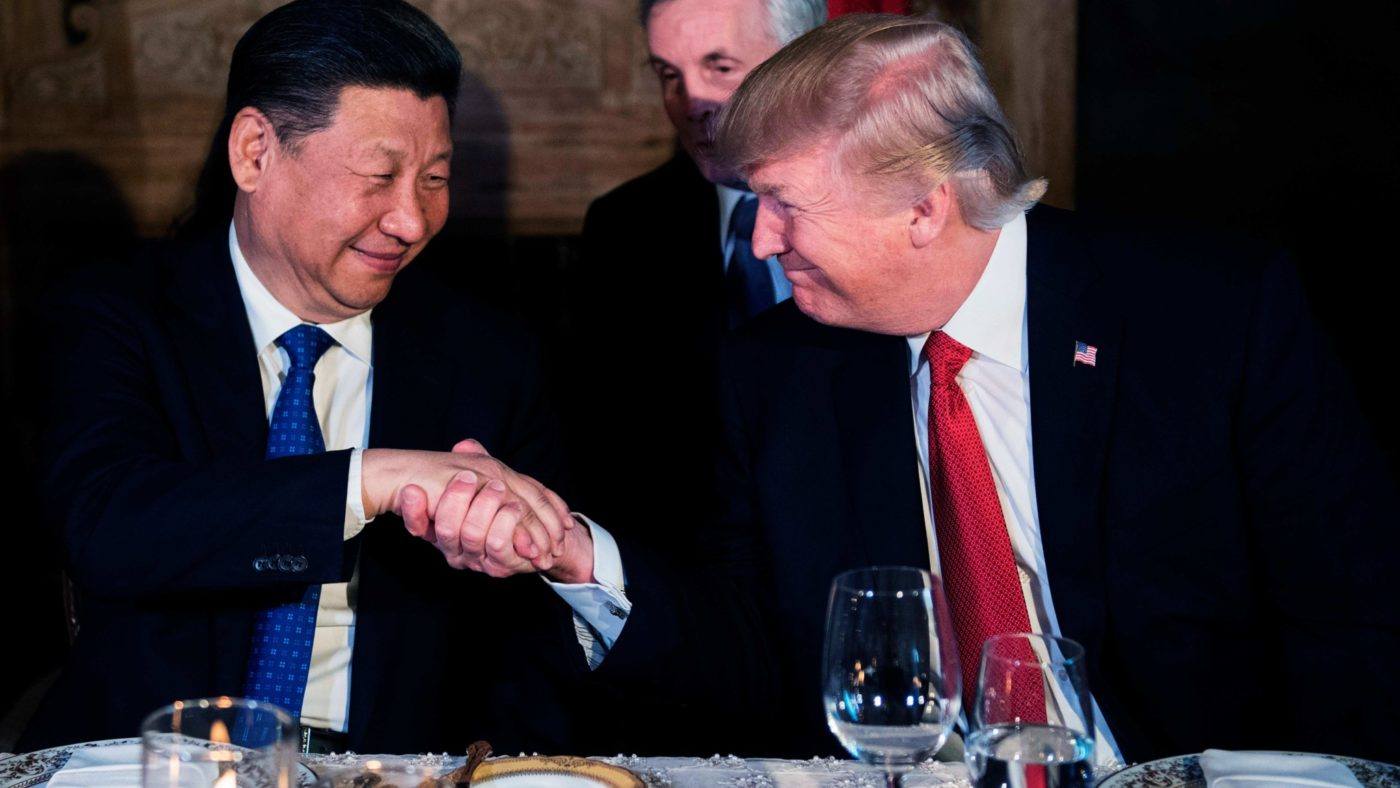It appears that we’ll have to describe Donald Trump as a Keynesian from now on. For he’s obeyed that dictum of the great man that when the facts change, minds get changed.
Trump has revealed to the Wall Street Journal that he has changed his mind on China, saying in an interview that “they’re not currency manipulators”. This is, to put it mildly, a something of a retreat from what he’s been saying these past few years. But it has the advantage of being true.
Certainly, an argument can be made that China used to keep the yuan artificially low in order to boost exports. The best response to that is “So what?” It means cheap imports for us, which is great – even if that’s a difficult sell politically.
But if there’s any manipulation at all going on today, it’s that China is trying to keep the yuan high against the dollar. This makes exports to the US more expensive. That is not something that I think is good for Americans, but it does rather shatter Trump’s original, opposite claim.
At a deeper level, though, I think this is an example of folk economics, something best summed up by Mark Twain’s comment that “It ain’t what you don’t know that gets you into trouble. It’s what you know for sure that just ain’t so.”
All too many people, at a gut level, believe things which just aren’t true – but which nonetheless colour their attitudes towards the world.
We could point to views on trade and, in particular, the mistaken belief that it’s exports which make us rich, not imports. That is the view of the man in the street and thus of all too many politicians who go on to insist that we must be protected from those cheap things made by foreigners. That is, we must be cut off from the entire point of trade itself.
I have had people adamantly insist to me that Walmart can afford any minimum wage we care to define because they make $120 billion a year in profits. What they don’t understand is the difference between gross profit – the amount before wages, rents, taxes, transport, electricity etc are paid – and net profit (perhaps $8 billion at that time).
Or, closer to home, those who should know better, such as Nick Clegg and more recently Nicky Morgan, insisting that WTO terms post-Brexit would mean that Britain must impose tariffs upon imports. It just ain’t so.
Other such beliefs include the idea that immigrants come over here to steal our jobs. Well, no but yes but – there is no fixed number of jobs and immigrants bring not just their labour but also their desires and demands for goods and services, which we can all get jobs supplying. The net effect is somewhere between nothing and not very much.
A final example of mistaken thinking is the idea that without agricultural subsidies there would be no farming in Britain. Given that all the current subsidies do is push up the cost of land, that is an odd belief.
There are two parts to the problem of such misconceptions. One is that it’s rather difficult to get a new idea into the head of the average human being. Doing so takes time. But economic stories usually all end the same way: it depends. And the circumstances, and therefore the answers, change more quickly than the ideas in people’s heads. As a result, economic beliefs lag behind reality.
The other part of the problem is the bedrock of folk economics. There aren’t all that many counterintuitive ideas in economics – Ricardo on trade being one of the few – but very large numbers of people will insist upon things which simply aren’t so. For example, that a capitalist making a profit is proof perfect that exploitation is happening. The labourer is not getting the full value of his work – that is obvious, surely?
Yet the labourer is gaining more income as a result of being able to use the capital than she would without it. So it is equally true to say that the capitalist is being exploited. She isn’t getting the full increase in output from the use of her capital, is she?
Fortunately, we have a cure for all of this: education and experience. As Trump himself has just shown. And, in fact, as Twain pointed out in a story of his involving a young man who is permanently arguing with his parents, so leaves home at 18 and doesn’t see Pops again until he is 25. At which point, he is amazed at how much his father has learned in only seven years.
Or as we might put it, the reason that people become less utopian and more liberally conservative as they age, is education and experience.
Leaving only the final question: when is Owen Jones going to start?


